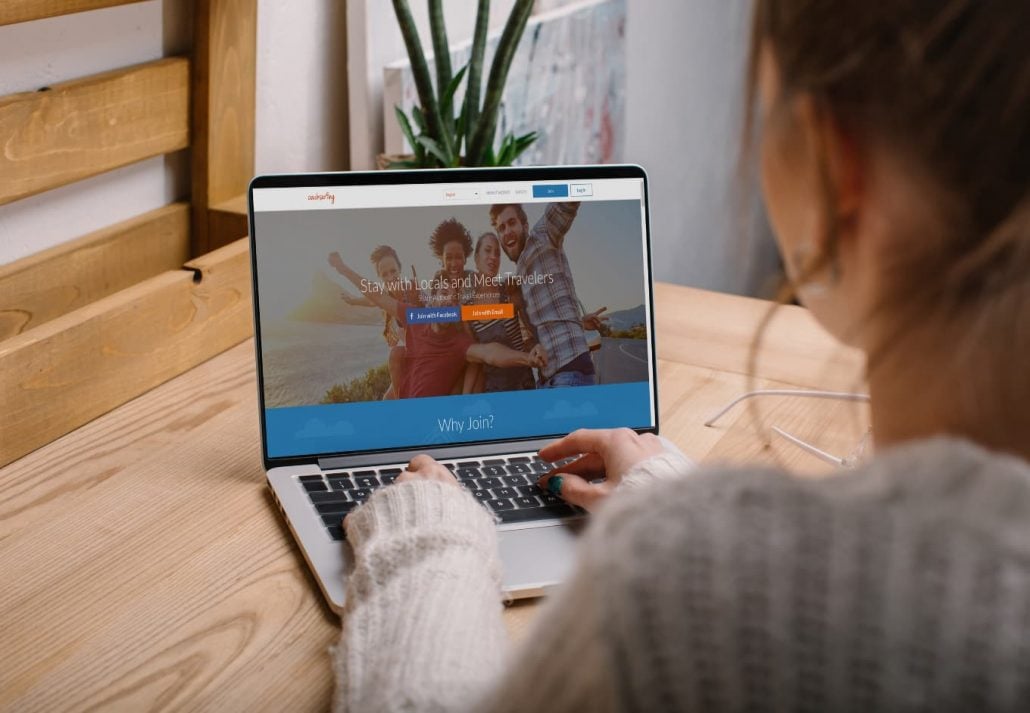How To Travel The World Like A Professional Couch Surfer
So, you’ve signed up for Couchsurfing after hearing it’s an awesome way to connect with locals while traveling. And you’re right! However, figuring out how the platform works can be a little overwhelming at first. Don’t worry—I’m here to...

So, you’ve signed up for Couchsurfing after hearing it’s an awesome way to connect with locals while traveling. And you’re right! However, figuring out how the platform works can be a little overwhelming at first. Don’t worry—I’m here to guide you through this unfamiliar territory and tell you how to become a professional couch surfer.
1. Making an awesome profile

When you’re just starting out, your profile is your most valuable asset, so treat it like one! Make sure to include at least one photo—though 3 to 5 is ideal—and fill out every section thoroughly. This is what potential hosts will use to determine if you’re the type of guest they will welcome into their home, so it’s your chance to showcase your best self!
In the ‘Countries I’ve Visited’ section, be sure to list all the places you’ve been and keep it updated. The more diverse your travel history, the more likely people will want to connect with you. If you’ve visited countries that aren’t typical tourist spots, hosts may be especially eager to meet you to hear your unique stories and get advice. In the Couchsurfing community, it’s often believed that well-traveled individuals make better surfers because they’re more attuned to handling a variety of situations.
2. To verify or not to verify?

In short, paying for verification won’t necessarily help you land hosts or surfers when you’re just starting out. While Couchsurfing might suggest that verification is key to finding hosts and guests, that’s not always the case. I’ve heard from verified members who’ve messaged several people only to be ignored or rejected.
Meanwhile, as a non-verified member, I receive a ton of couch requests and have no trouble finding hosts. Clearly, there are other factors at play. What will really help you get started with Couchsurfing like a pro is gathering references.
3. Getting plenty of references

In the Couchsurfing community, references are essential for finding hosts. New members might struggle to get references, but there are two types: hosting/surfing and personal. Friends on Couchsurfing can leave personal references. If you don’t have friends, attend Couchsurfing events to meet people and ask for references. While personal references aren’t as valuable as hosting/surfing ones, they can still improve your chances of finding hosts or surfers.
4. Finding the right host

You’ve done a great job creating your profile and gathering references. Now, let’s find a host. Unfortunately, some hosts have outdated policies and might refuse to host certain surfers. For example, female hosts might not want to host male surfers for safety reasons. To avoid rejection, look for hosts with references from both men and women.
Use the app or website to search for hosts based on your location and desired dates. You can also use filters like languages, age, and more to narrow down your options. Make sure to search for your specific dates to find hosts who are available when you need them.
5. Requesting a couch

Write a personalized introduction message, highlighting shared interests or experiences from their profile. Mention what you can offer, like teaching a language, cooking, sharing travel stories, or bringing souvenirs. Remember, you have a limit of 10 requests per month. If you’re planning a longer trip, it’s better to contact potential hosts directly before sending requests to avoid wasting them.
6. Offering up your own couch

Just like the previous idea, let’s highlight the unique aspects of your neighborhood. Are there any historical sites, natural wonders, or hidden gems that you love to explore? Perhaps you have a vibrant nightlife or excellent transportation options. Think about what you value in a community and how our area can meet those needs.
7. Capitalizing on public trips

The Couchsurfing website lets you create public trips that other users can see. This can help you find both a host and a travel companion. When hosts see your public trip, they can offer to host you if they think you’d be a good fit. You might even get multiple offers using this feature.
Frequently Asked Questions
What is couch surfing, and how does it work?
Couchsurfing is a way for travelers to stay with hosts for free while exploring new places. Couch surfers use platforms to connect with hosts willing to offer a couch, bed, or space in their home. It’s a great way to meet new people and experience local cultures.
Do couch surfers stay for free?
Yes, couch surfing is generally free, but it’s important to treat it as a cultural exchange, not just free accommodation. As a couch surfer, show gratitude by helping around the house or sharing a meal with your host. Building friendships is key.
Is couch surfing safe for travelers?
Couch surfing is generally safe if you follow basic precautions. Read reviews from other couch surfers before committing, communicate with hosts through the site or app, and always meet in public places before staying at someone’s house. Trust your instincts and don’t feel forced to stay if you’re uncomfortable.
Can couch surfers stay long-term with hosts?
Couch surfing is typically for short stays, usually ranging from one to a few days. Always check with your host regarding how long they’re comfortable having you stay. Overstaying your welcome might strain the host-guest relationship.
How do I become a Couchsurfing host?
If you have a couch or space in your home, you can sign up to host travelers on Couchsurfing platforms. Make sure to create a clear profile outlining what you can offer, including any house rules. Hosting is a great way to meet new people from all over the world.
What do I do if I can’t find a host to couch surf?
Sometimes hosts may not be available, especially during peak travel seasons. Couch surfers can use other free platforms to explore budget accommodations or connect with friends who might know people in the area. Always have a backup plan to avoid being forced to sleep on the streets.

 Fransebas
Fransebas 































.jpg&h=630&w=1200&q=100&v=f776164e2b&c=1)